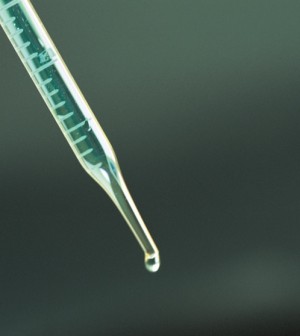- Could Artificial Sweeteners Be Aging the Brain Faster?
- Techniques for Soothing Your Nervous System
- Does the Water in Your House Smell Funny? Here’s Why
- Can a Daily Dose of Apple Cider Vinegar Actually Aid Weight Loss?
- 6 Health Beverages That Can Actually Spike Your Blood Sugar
- Treatment Options for Social Anxiety Disorder
- Understanding the Connection Between Anxiety and Depression
- How Daily Prunes Can Influence Cholesterol and Inflammation
- When to Take B12 for Better Absorption and Energy
- Epsom Salts: Health Benefits and Uses
Health Highlights: May 18, 2015


Here are some of the latest health and medical news developments, compiled by the editors of HealthDay:
Rapidly Expanding Stem Cell Industry in U.S. a ‘Wild West’
The lack of government control over the rapidly expanding stem cell industry in the United States has some experts concerned.
Despite little evidence of safety or effectiveness, more than 170 clinics nationwide offer experimental stem cell procedures for dozens of disorders, the Associated Press reported.
Doctors are treating patients with experimental stem cell therapies that could take years, or even decades, to be developed into treatments proven to be safe and effective, according to academic stem cell researchers.
“It’s sort of this 21st century cutting-edge technology. But the way it’s being implemented at these clinics and how it’s regulated is more like the 19th century. It’s a Wild West,” Dr. Paul Knoepfler, a stem cell researcher at the University of California at Davis, told the AP.
In 2010, only a few doctors marketed stem cell therapy in the U.S., mainly cosmetic procedures. Now, clinics across the country offer stem cell therapy for disorders ranging from hair loss and erectile dysfunction to arthritis and Alzheimer’s disease, with costs ranging from $5,000 to $20,000.
Many clinics are associated with large, for-profit chains that doctors join after taking a seminar and buying some equipment, the AP reported.
The U.S. Food and Drug Administration’s authority to regulate stem cell procedures is unclear, but the agency appears to be preparing to increase its oversight. Late last year, the FDA released draft guidelines targeting a popular fat-based stem cell technique.
However, many doctors who offer stem cell treatments say they don’t require FDA permission because they are performing in-office surgical procedures, not creating drugs, the AP reported.
Copyright © 2026 HealthDay. All rights reserved.










